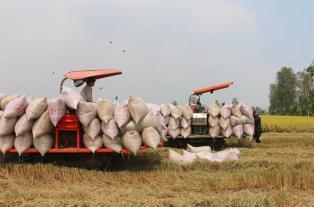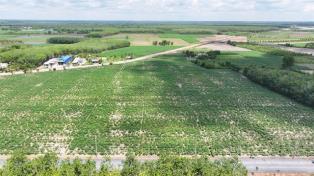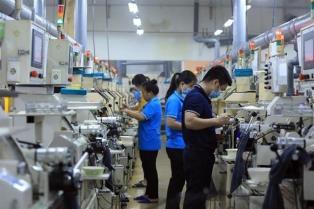According to the Ministry of Agriculture and Environment, the average export price of rice fell by 18.4 per cent year-on-year, reaching $517.5 per tonne.

HÀ NỘI — Việt Nam exported 4.9 million tonnes of rice worth US$2.54 billion in the first half of 2025, marking a 7.6 per cent increase in volume but a 12.2 per cent drop in value compared to the same period last year. Coffee exports also faced headwinds, as rising domestic prices prompted farmers to hold back supply.
According to the Ministry of Agriculture and Environment, the average export price of rice fell by 18.4 per cent year-on-year, reaching $517.5 per tonne.
The Philippines remained Việt Nam’s top rice buyer, accounting for 43.4 per cent of total export volume, though the value of shipments to the market declined by 17.4 per cent. Meanwhile, exports to Côte d’Ivoire and Ghana surged sharply, up 88.6 and 61.4 per cent respectively. Among Việt Nam’s 15 largest rice markets, Bangladesh posted the most dramatic growth, increasing nearly 293 times over, while exports to Malaysia recorded the steepest decline, down 54.7 per cent.
Domestically, rice prices in the Mekong Delta inched up over the past week. In Cần Thơ, IR50404 dry paddy was priced at 7,900 đồng per kilogram, Jasmine rice at 8,400 đồng, while ST25 remained stable at 9,500 đồng. Fresh paddy prices also rose in An Giang, while retail rice prices ranged between 14,500 and 22,000 đồng, depending on the variety.
On the export front, the Việt Nam Food Association reported that the country’s 5 per cent broken rice was quoted at $382 per tonne on July 3, slipping slightly from $383 the previous week.
In the coffee sector, domestic prices hovered between 95,800 and 96,400 đồng per kilogram. However, coffee exports dropped 23 per cent in the first half of 2025. The sharp rise in domestic prices led many farmers to hold on to their beans in hopes of further gains, resulting in a temporary supply shortage for exporters. Price volatility also prompted exporting firms to proceed more cautiously in international markets. — VNS





